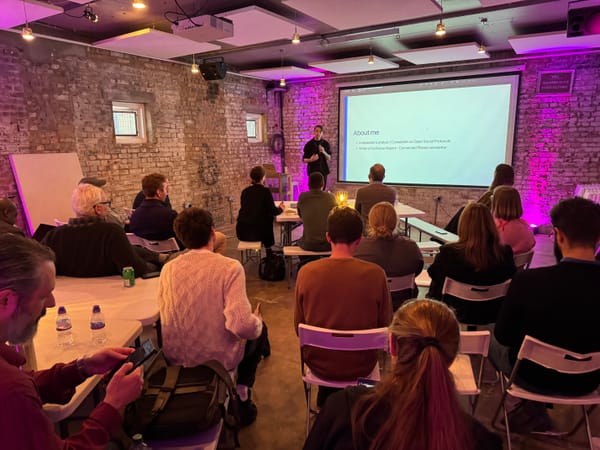
Can we build the dog?
What resource-constrained teams need to ask before writing a line of code

AI coding works now. Here's how to think about it.

How Protocols for Publishers points to the future of journalism – and the web

A Supreme Court case about a bank robbery could redefine your digital rights.

A Supreme Court case about a bank robbery could redefine your digital rights.

They came for the newsroom. It was ready.

Things I've learned.

Building a community means looking beyond coding tests.

Highlights and hopes for the new year.

Personalization is coming to journalism. The question is: who controls it?
Ben Werdmuller explores the intersection of technology, democracy, and society. Always independently published, reader-supported, and free to read.
"Feed algorithms are widely suspected to influence political attitudes." This study shows that some do - to significant effect.
In a world where traffic is decreasing, publishers are moving more heavily into subscriptions - with very good results.

My underlying model for everything that's happening

How Protocols for Publishers points to the future of journalism – and the web
A position statement for FediForum's unworkshop
Switzerland rejected Palantir on security grounds after independent journalism shed light on fundamental issues. Now the company is suing to tell its side of the story.
Only 8% of respondents believe individual Americans have a responsibility to pay for news. "I don't think that information should be a privilege," one respondent said.
"Fed up with increasing subscription prices, viewers embrace rogue streaming boxes." The question is: what's on them?
I made a mistake last month that hopefully others can learn from. There are rumors that ICE is turning its attention to the Philadelphia area, where I live. I’m a natural-born American citizen, but based on accounts from Minneapolis, I’m not excited to run into them, and I’
"The data are clear: The open-source culture that defined an earlier era of online journalism has collapsed."
"Red flags that both job seekers and employers should watch for, in an era of AI slop and application scams."

What does the future of engineering look like? And more.